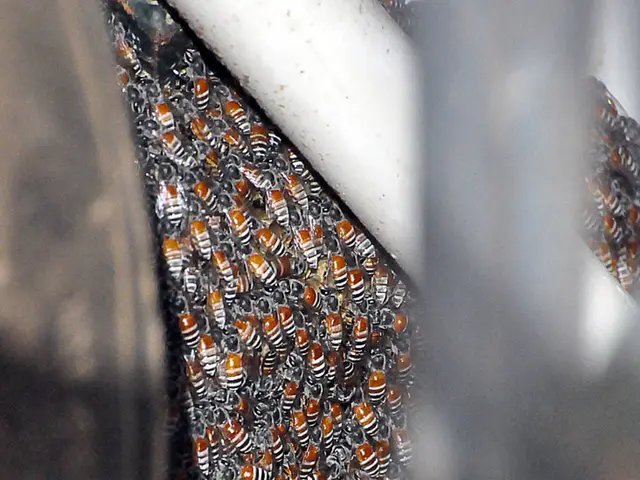Astronomer seeks indications of life on the frosty satellite moon
Title: Enceladus, Saturn's Moon, Emerges as a Promising Candidate for Alien Life
In the vastness of space, Saturn's moon Enceladus has risen as a compelling location in the quest for extraterrestrial life. Smaller than our moon and seemingly inhospitable with its thick ice crust and temperatures as low as minus 200 degrees, Enceladus conceals a remarkable secret - an ocean of liquid water beneath its surface.
"The likelihood of life is enhanced where water is present," explains astrobiologist Nozair Khawaja, heading a research team at the Free University. Upcoming research will explore the molecules capable of forming under conditions similar to those existing on Enceladus.
Until recently, scientists believed the region beyond Mars to be unsuitable for finding signs of life or conditions supportive of life due to its frigid temperatures and limited sunlight. However, the discovery of liquid water on Enceladus, hinted through water jets and geysers at its south pole in 2005, has since challenged this notion. From cracks in the moon's surface, water vapor and ice particles are propelled hundreds of kilometers into space.
What makes Enceladus particularly tantalizing are the organic molecules discovered in the ice particles captured within its plumes. These molecules, both simple and complex, are key components for life. In an astonishing finding, Khawaja's team detected very large organic molecules in an extraterrestrial ocean for the first time, possibly indicating biological activity on Enceladus. Alternatively, the molecules could have formed due to hydrothermal reactions.
To further explore the potential for life on Enceladus, Khawaja and his team will simulate the conditions within the moon's subterranean ocean in the lab and monitor what takes place beneath the ice sheet. If life is found on Enceladus, the discovery would offer hope that traces of life might be located elsewhere in the universe and that suitable conditions might exist for human-like life in the future.
While Enceladus has yet to yield definitive evidence of alien life, its conditions are reminiscent of extreme environments on Earth where microbial life thrives. The presence of liquid water, organic molecules, and energy sources make it an ideal candidate for hosting microbial life. Future missions plan to delve deeper into Enceladus and similarly situated celestial bodies to continue the search for life beyond our planet.
In a message to science fiction enthusiasts, Khawaja clarifies that their focus is on locating simple organisms like bacteria, dismantling the notion of a little green man residing on Enceladus. "We're not hunting for something that shares our appearance, with two eyes, a nose, and arms."
"The European Union is considering initiatives in environmental-science, particularly surrounding Enceladus, as the moon's ocean of liquid water and presence of complex organic molecules raise questions about the potential for life. In the fields of science, health-and-wellness, and space-and-astronomy, these discoveries on Enceladus could greatly impact our understanding of life beyond Earth and advocate for the possibility of extraterrestrial life."
"Astrobiologist Nozair Khawaja and his team's research on Enceladus' molecules capable of forming under conditions similar to those existing on the moon could have profound implications not only for the environmental-science field but also for our understanding of life as we know it within the European Union's focus areas of science, health-and-wellness, and space-and-astronomy."








